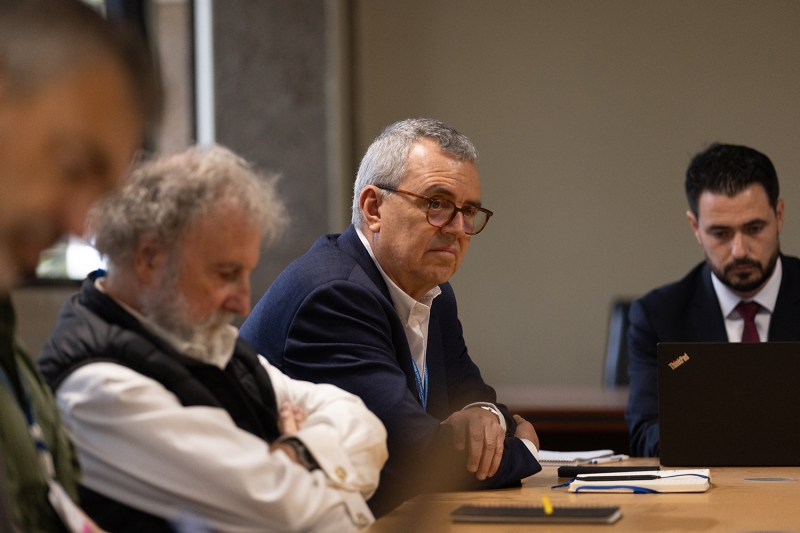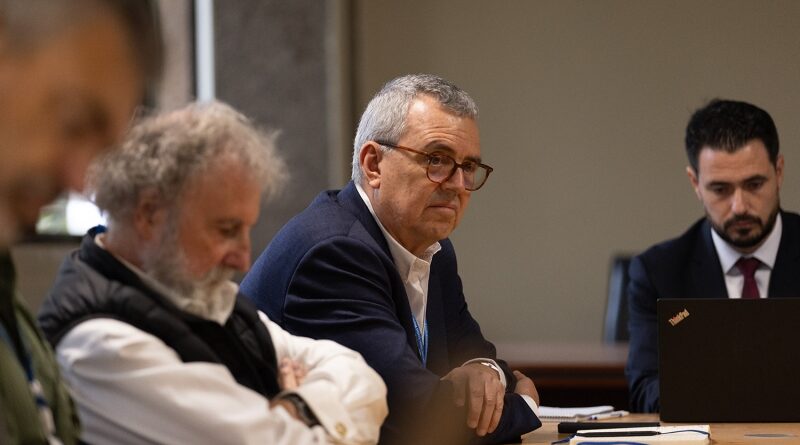How another important environmental report aims to influence policy-making
What is the GEO-7 report and why is it so important?
Edgar Gutierrez-Espeleta (EG): GEO is the latest scientific analysis. We use all existing reports, and we analyze everything so that policymakers can see the problem and be motivated to take the necessary action.
GEO-7 will mark, as we speak in Spanish, before and after (front and back). From GEO-7, we will start looking at things differently. We try to bring a holistic view to the equation, not a narrow view, so that we can present solutions to put on the table for decision makers. Its 21 chapters cover pretty much everything in terms of environment.
How will GEO-7 benefit governments?
EG: GEO-7 is very focused on solutions. We offer readers not only solutions, but also ideas. Another focus is what will happen in the years 2050 and 2100 if we follow the current business as usual scenario. That is very good for the decision makers to realize how important it is to act now to change the direction we are heading.
Environmental issues are no longer just environmental issues. They affect the economy, social security, housing, agriculture, transport, the health sector – everything. GEO-7 makes those connections, providing insight into how if we end environmental degradation, we can address other issues as well.

How important is the involvement of policy makers and other stakeholders in preparing GEO-7?
EG: It is very important. An Intergovernmental and Multi-agency Advisory Group agreed on a way forward, clarifying the budget, approach and scope. The team has already given feedback on the scope of the report and how to address the issues. We maintain a very close relationship with the Member States, and every time the GEO-7 authors meet, we also have a meeting with this group.
How else have governments supported the GEO-7 process?
EG: Member States have provided the names of scientists who can review parts of the report. This is a process involving more than 300 scientists worldwide, but the more scientists are engaged, the better the report will be. There are many opportunities for people to participate, such as writing, reviewing and editing. It is also very important for scientists from Africa, Asia and the Pacific, Eastern Europe and Latin America and the Caribbean to bring their knowledge, inputs and ideas so that we can enrich GEO-7.
How will the GEO-7 Group encourage policy makers to act?
EG: We are already presenting a second plan, which will include a summary that will appeal to policy makers. We have a summary for each chapter, and we present a summary aimed at decision makers only.
Who else can benefit from GEO-7?
EG: GEO has recommended many integrated environmental assessments at sectoral and thematic levels. But with GEO-7, we expect more. For example, social media plays an important role. There is a group thinking about how we will reach a new audience, how we will spread this to different parts of the population – young people, universities and policy makers. This is an important part of GEO-7.
What do you hope will be the greatest legacy of the GEO-7 report?
EG: I will be very happy if GEO-7 can influence policy-making decisions at all levels and move the ministers of environment, finance, industry, agriculture and others to stop the destruction of the environment. We must realize that if we continue to do business as usual, we will not have enough land to produce enough food to eat by 2050.
When you’re in politics, you don’t always worry about what’s going to happen in 2050. Instead, you worry about what’s going to happen in the next three years, because now the elections are coming, you need elections. But that kind of perspective brings us closer to the abyss.
We need to think long term, and we need to have the courage to act. I think GEO-7 will contribute to this if it is read correctly.
TheGeolocation (GEO)is a major UNEP report, providing an integrated assessment of the drivers of climate change, the current state of the environment, the effectiveness of policy responses and options for achieving different possible futures in the medium to it is long. As requested by the Members of thedecision 5/3ofUnited Nations Environment ConferenceUNEP has launched the preparation of the seventh edition of the Global Environment Outlook (GEO-7) and an accompanying summary for policymakers. The report will be presented at UNEA-7 in December 2025.
#important #environmental #report #aims #influence #policymaking
